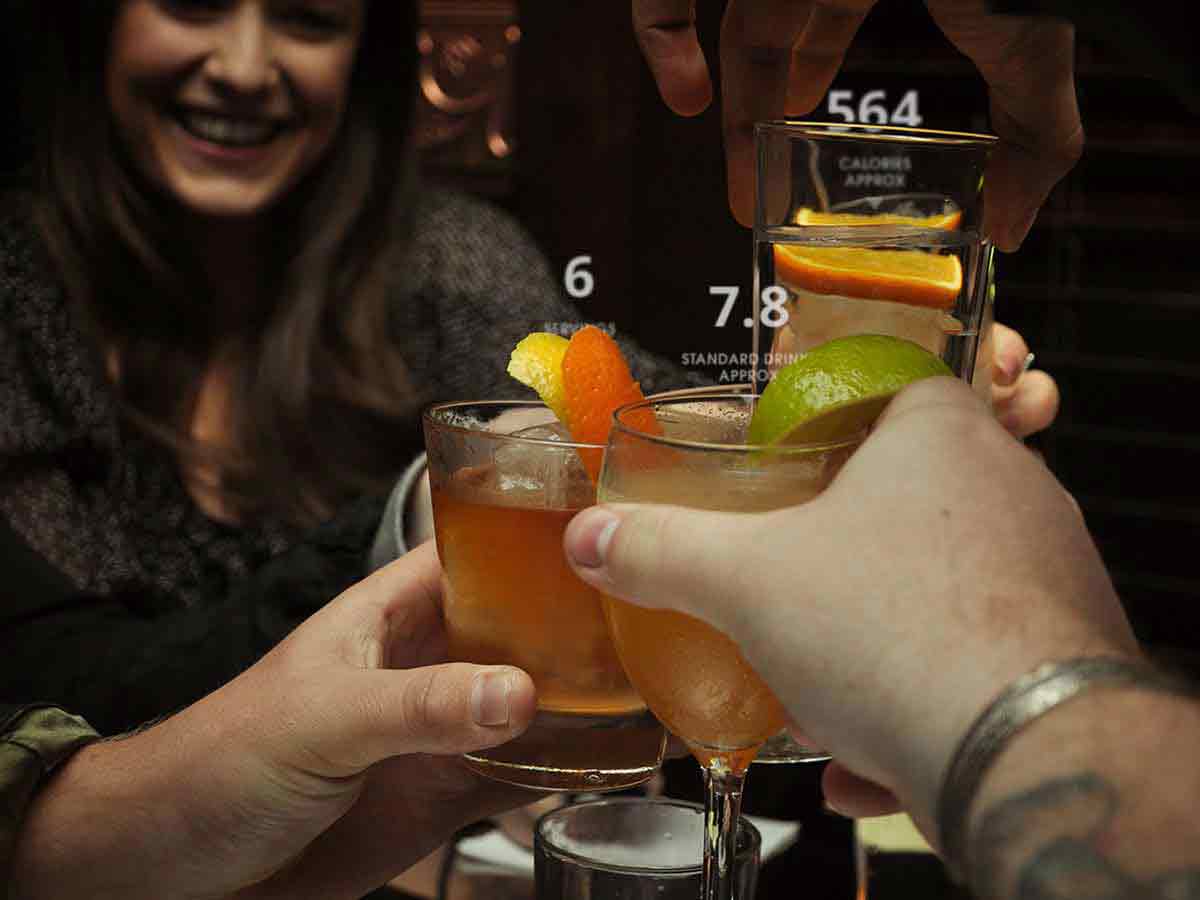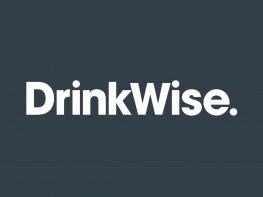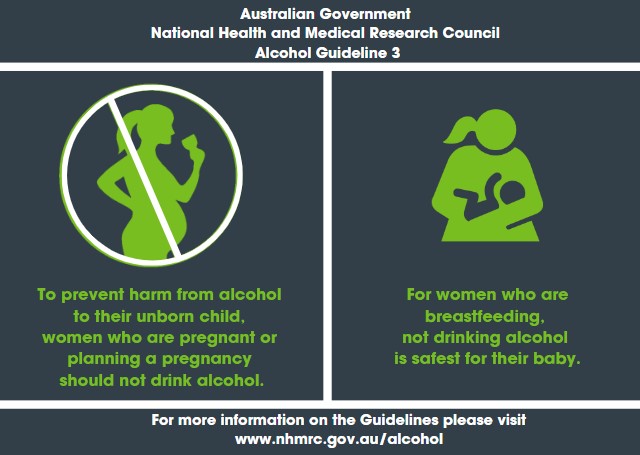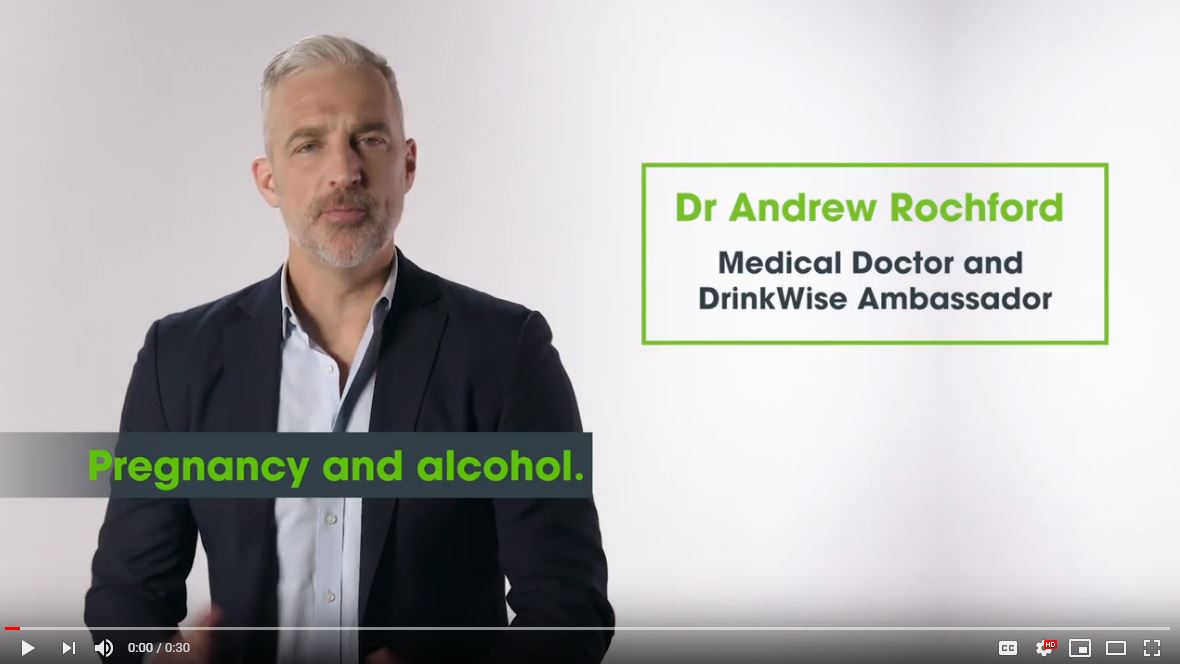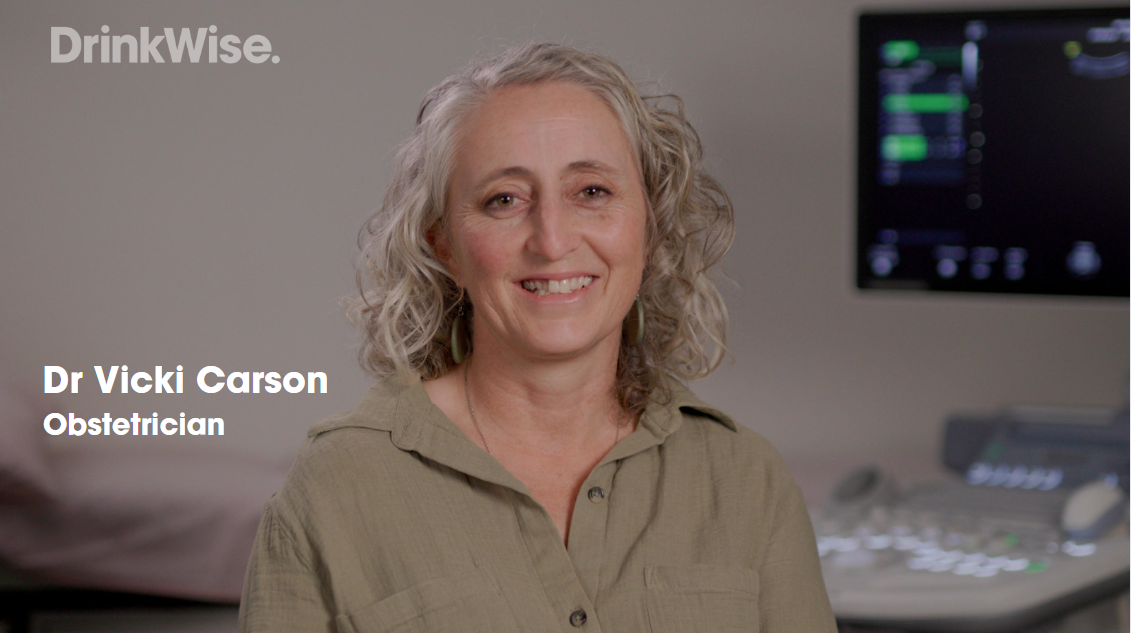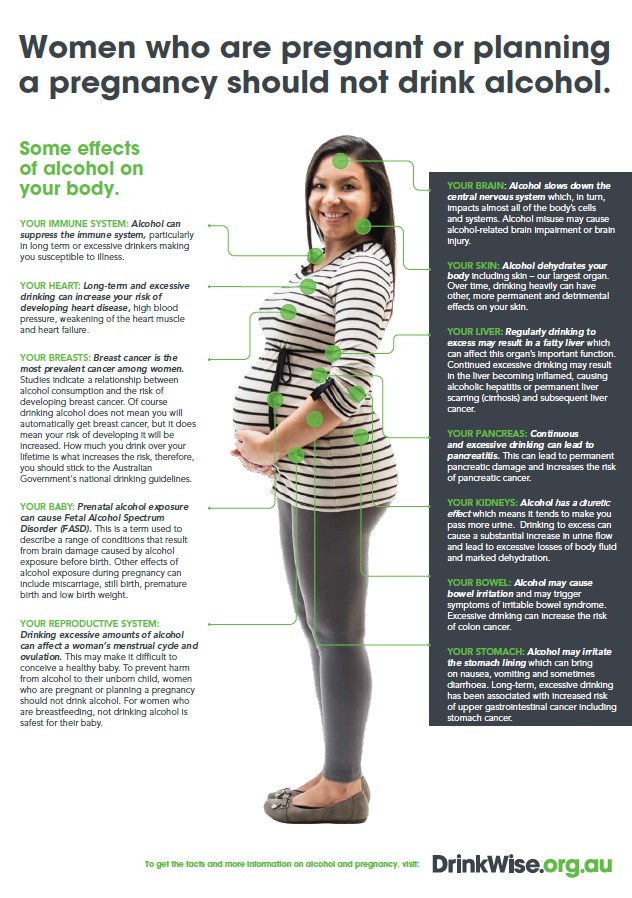Give your baby the best possible start and avoid the risks of Fetal Alcohol Spectrum Disorder (FASD). If you are pregnant or planning a pregnancy, you should not drink alcohol. If you are breastfeeding, not drinking alcohol is safest for your baby.
Through the evidence-based Australian guidelines to reduce health risks from drinking alcohol, the National Health and Medical Research Council (NHMRC) provide Australians with advice on the health effects of drinking alcohol. The guidelines advise that to prevent harm from alcohol to their unborn child, women who are pregnant or planning a pregnancy should not drink alcohol. For women who are breastfeeding, not drinking alcohol is safest for their baby.
| Medical Doctor and DrinkWise Ambassador Andrew Rochford encourages Australians to be aware of the National Health and Medical Research Councils (NHMRC) Australian guidelines to reduce health risks from drinking alcohol and the risks of FASD. | Obstetrician, Dr Vicki Carson advises it’s safest to avoid alcohol all together when you’re planning a pregnancy, when you’re pregnant and when you’re breastfeeding. |
Planning
If you’re planning a pregnancy, it’s important for you both to be in your best physical condition to increase the likelihood of conceiving a healthy baby. This means it’s a good idea to understand how alcohol can affect your chance of conceiving. Drinking alcohol can affect both women’s and men’s fertility. Research has found that even drinking moderately can increase the time it takes to get pregnant and reduce the chances of having a healthy baby. You could be pregnant for a few weeks before knowing it.
Effects on women
Drinking even small amounts of alcohol can increase the time it takes to get pregnant. Drinking excessive amounts of alcohol can affect a woman’s menstrual cycle and ovulation, which can make it difficult to conceive.
Effects on men
Drinking alcohol excessively can decrease sex drive and performance. Drinking excessive amounts of alcohol can also reduce the amount of testosterone in the blood and increase the risk of male fertility problems.
Pregnant
To prevent harm from alcohol to their unborn child, women who are pregnant or planning a pregnancy should not drink alcohol. Alcohol crosses from the mother’s blood stream into the baby’s blood stream and can affect the baby’s development. If you are pregnant and drink then so does your baby and that can cause harm.
The risks of alcohol on pregnancy
Prenatal alcohol exposure can cause FASD. This is a term used to describe a range of conditions that result from brain damage caused by alcohol exposure before birth. Other effects of alcohol exposure during pregnancy can include miscarriage, still birth, premature birth and low birth weight.
What if you drank before you knew you were pregnant?
If you consumed alcohol before you knew you were pregnant and have concerns, it’s important to talk to your doctor, obstetrician or midwife.
Partners, friends and family members of pregnant women
If it’s your partner, friend or family member who is who is pregnant, it’s really important to support them to stop drinking alcohol.
Breastfeeding
The amount of alcohol in your blood is the same as the amount of alcohol in your breast milk. For women who are breastfeeding, not drinking alcohol is safest for their baby.
Looking for more information
For more information about alcohol when planning a pregnancy, when pregnant or when breastfeeding please talk to your doctor, obstetrician or midwife, or visit:



